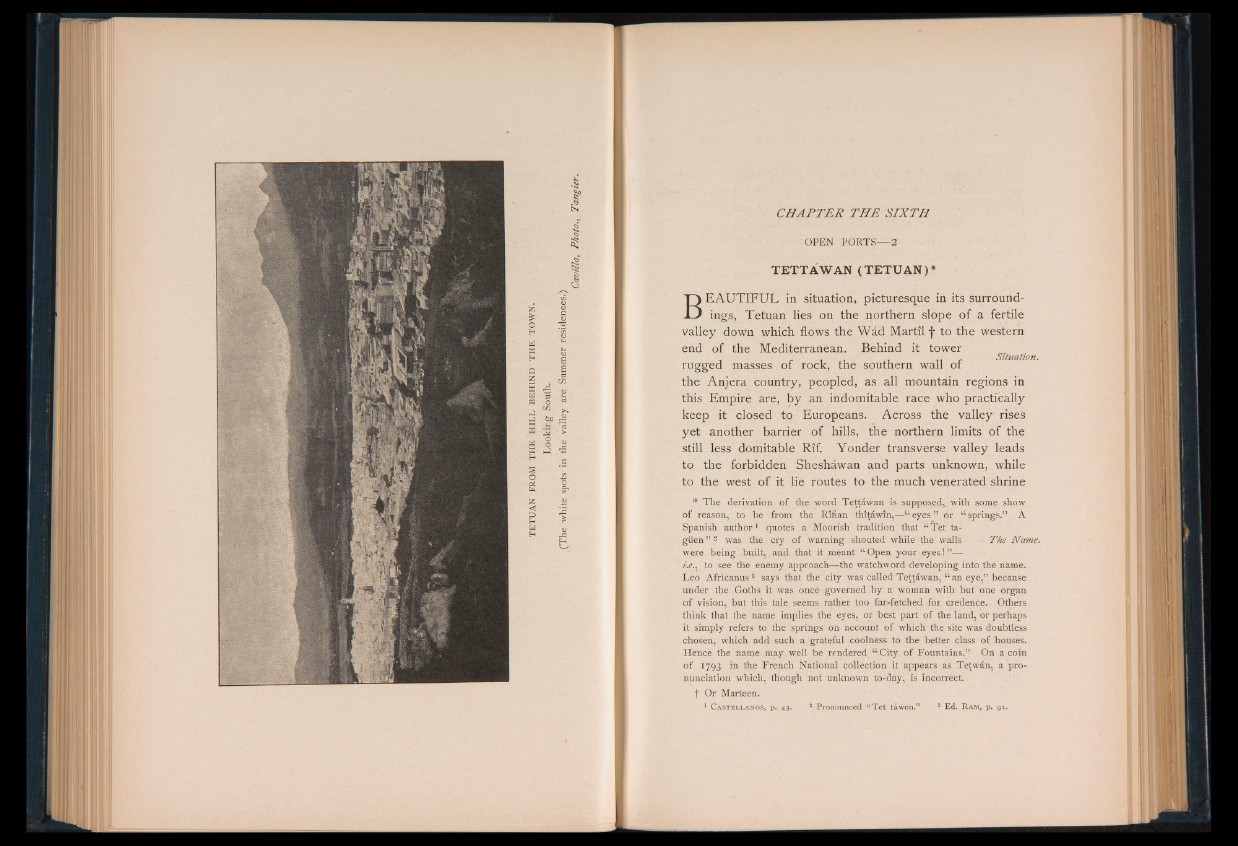
CH APTER TH E SIX TH
■ OPEN PORTS— 2
TETTAWAN (TETUAN) *
BEAU TIFUL in situation, picturesque in its surroundings,
Tetuan lies on the northern slope of a fertile
valley down which flows the Wad Martil f to the western
end of the Mediterranean. Behind it tower , ,
rugged masses of rock, the southern wall of
the Anjera country, peopled, as all mountain regions in
this Empire are, by an indomitable race who practically
keep it closed to Europeans. Across the valley rises
yet another barrier of hills, the northern limits of the
still less domitable Rif. Yonder transverse valley leads
to the forbidden Sheshawan and parts unknown, while
to the west of it lie routes to the much venerated shrine
* The derivation of the word Tettawan is supposed,, with some show
of reason, to be from the Rifian thitawin,— “ eyes ” or “ springs.” A
Spanish author1 quotes a Moorish tradition that “ Tet tagiien
” 2 was the cry of warning shouted while the walls The Name.
were being built, and that it meant “ Open your eyes!”—
to see the enemy approach— the watchword developing into the name.
Leo Africanus8 says that the city was called Tettdwan, “ an eye,” because
under the Goths it.was once governed by a woman with but one organ
of vision, but this tale seems rather too farrfetched for credence. Others
think that the name implies the eyes, or best part of the land, or perhaps
it simply refers to the springs on account of which the site was doubtless
chosen, which add such a grateful coolness to the better class of houses.
Hence the name may well be rendered “ City of Fountains.” On a coin
° f I793 in the French National collection it appears as Tetwdn, a pronunciation
which, though not unknown to-day, is incorrect,
f Or Marteen.
1 C a s t e l l a n o s , p. 43. 2 Pronounced “ T e t tawen,” 3 Ed. R am , p. 9 1.